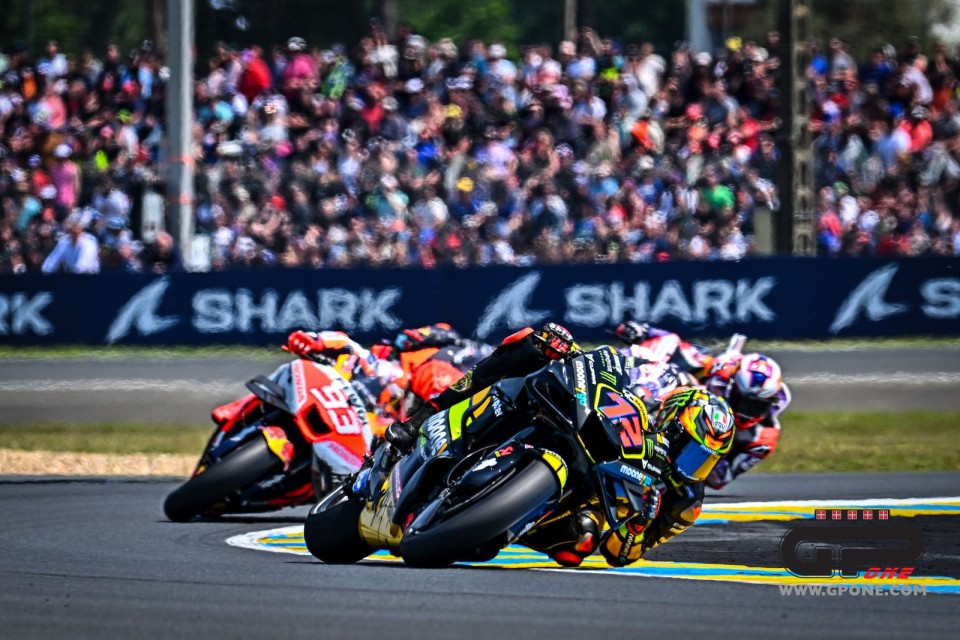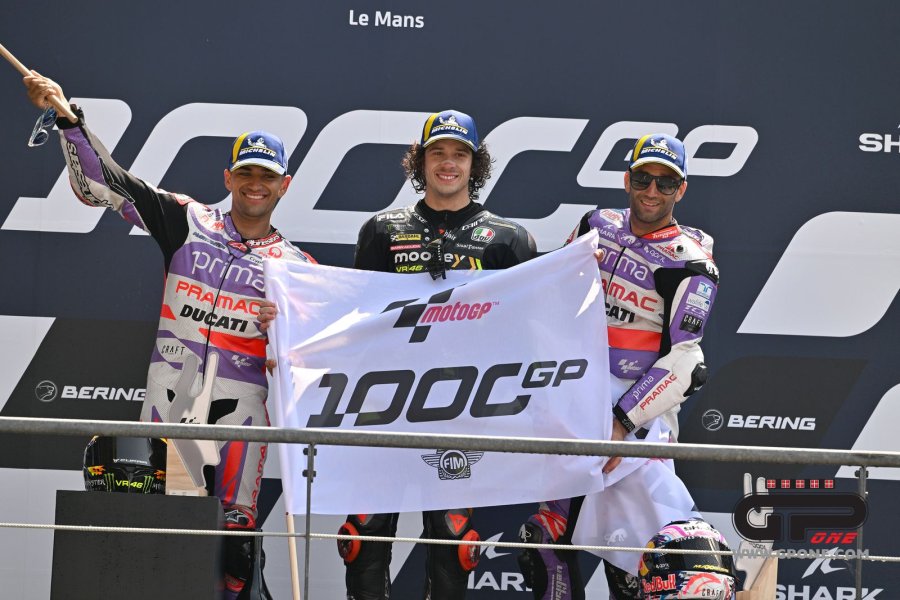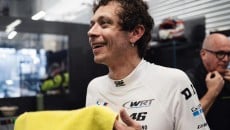The fifth round of the MotoGP world championship is in the archives with a great victory for Marco Bezzecchi, a fantastic duel between Martin and Marquez, which ended with the latter crashing out less than two laps from the end while fighting for second place, a collision shortly after the start between Bagnaia and Vinales and many other incidents, such as the one to which Luca Marini fell victim after a good save. But that's not the point.
In fact, we are witnessing an increase in the number of incidents, and this is almost a foregone conclusion because if you double the number of starts it is inevitable, statistically speaking, that you double the number of crashes. We knew it from the beginning, and from the beginning we said we didn't like it.
The excitement of Saturday’s Sprint Race with victory for the explosive Jorge Martin is not enough to make us forget the many negative aspects of the new formula, the most important of which is certainly the lower level of safety, but also a certain downgrading of the actual Grand Prix itself, which in the past has always been experienced as the Big Event.
So the world championship weekend now burns up in a jumble of minor events, with Friday which is more or less a qualifying session for Q2, while on Saturday the same fight for pole is watered down by the Sprint immediately afterwards. But at the end of the day these are personal impressions, and we admit that they can be misled by our very long permanence in the championship that has always been lived as a sort of worship.

Invece di sprecare tempo a raccontarvelo vi faccio leggere questa breve notai dell’amico David Emmet di Motomatters, che è un genio assoluto nelle analisi.
We live in a reality made up of micro-emotions, and social media networks show us that the attention of viewers is minimal, but must be won, even if for a few minutes. Stories, reels are the quintessence of futility and a certain bulimic approach to life.
It seems that there is no more time to wait, nor the desire to get to the bottom of a story. After all, today, rather than taking on the trouble of watching a film in its entirety, we prefer to follow the series by binge watching, to interrupt the vision as we please, move on to something else, and then maybe resume the gist of what has already been seen.
But again, that's not the point.
The point is that we are witnessing a motorcycle world championship that is profoundly different from all those that have come before it, and it is likely that in the end we will have a world champion who wins thanks to different strategies. That, at least, is the case of Joan Mir, winner of the Covid-era world championship with double-header races on the same circuit.
After all, athletics, my great passion, shows us with the Decathlon that the champion of this points specialty which includes classic events such as the 100 metres, the 400m and the 1500m is miles away from the records of each individual category. For example: the 100 meters are run in 10.12s…
In that specialty, therefore, performance average counts more than performance outright. And so the world championship has become a sort of…Triathlon. Why three specialties? Well, because today pole is more important than ever, given that it gives access to two races, the Sprint and the actual GP, then there is precisely the Sprint Race and then the Grand Prix.
In… let's call it classic MotoGP, pole was obviously always important, but mitigated by the length of the race which could allow for a recovery even with if you started from the centre of the grid or worse. Which is impossible today. If you screw up qualifying, you are penalized twice.
And so we get to the point: with five Grands Prix behind it, MotoGP has distributed a whopping 185 points, but how did it go?
Instead of wasting time telling you about it, I'll let you read this brief note by my friend David Emmett of Motomatters, who is an absolute genius in analysis.
Comparing this championship to previous years will get you a good sense of how low the average points tally is. After the first five races of 2015, Valentino Rossi had 102 points out of a maximum of 125. In 2016, Jorge Lorenzo had 90 out of 125, in 2018 and 2019, Marc Marquez had 95 out of 125. In 2017 Maverick Viñales had 85 out of 125, In 2021 Fabio Quartararo had 80 out of 125. Quartararo's 2021 score was still 64% of the available points.
The nearest equivalent is the 2022 championship. Fabio Quartararo led the title chase with 69 points out of a maximum of 125 last year after five races. That is still a points haul of 55%, 5% more than Bagnaia's performance in 2023.
To put it another way, there are still a numerically pleasing 555 points still on the table, if no more races are canceled (and the news out of India is that the race at the Buddh International Circuit will go ahead as planned). If Bagnaia were to carry on at this rate, scoring between 50-51% of the points on offer each weekend, then he would nab another 283 points, giving him a grand total of 377 points at the end of the year.
That is 43 points less than Marc Marquez racked up on his way to his sixth MotoGP title in 2019. And Marquez did that in a season which had 19, rather than 20 rounds, and when there were only 25 points on offer at each weekend.
Today, however, there are 37 points available for each Grand Prix, for a total of 185 in these first five rounds of the championship.
The numbers speak for themselves. Like the fact that Francesco Bagnaia is leading the championship despite three Grands Prix with zero points. Marco Bezzecchi, from this point of view, has been much more consistent with two GP victories, a third and a sixth place.
As we don’t have a crystal ball, we can't say who will win the 2023 world championship, but what is certain is that with so many points (and errors) at hand, he will be a different Champion from the previous ones. But please let’s stop talking about a stellar level of riders. There's a very good standard, of course, but in no way is it stellar. After all, in which sport does an athlete come back after a month and a half injury, miss out on pole by a hair's breadth and then fight for the podium in non-optimal technical conditions?
The beauty of sport is that one can disagree, but we are still talking about sport. A recreational activity. Different interpretations of the facts are accepted. Provided they are stated with the clarity of our friend David.











